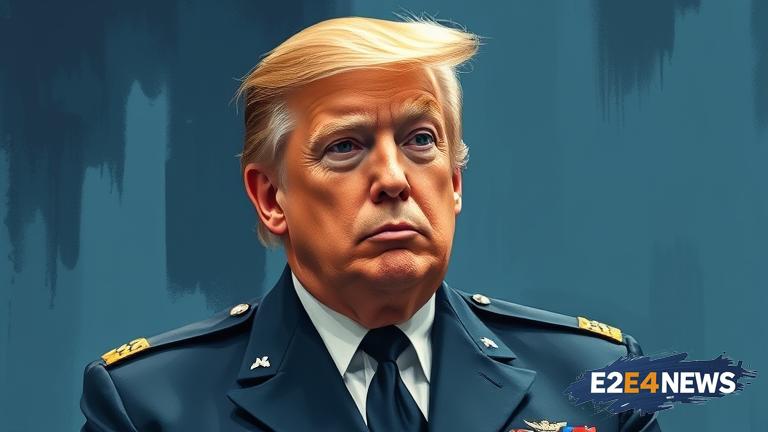The story begins on November 17th, 2016, when NSA Admiral Mike Rogers allegedly paid a visit to President-elect Donald Trump at Trump Tower in New York City. This meeting was not publicly disclosed at the time, but it is believed to have been a pivotal moment in the saga of alleged surveillance of the Trump campaign. According to reports, Admiral Rogers warned Trump that his transition team was being monitored by the NSA, and that he should be cautious in his communications. This warning was reportedly given after Rogers had discovered that the NSA was indeed collecting data on the Trump campaign, allegedly as part of a larger surveillance operation. The exact nature and extent of this surveillance are still unclear, but it is believed to have involved the collection of communications data from various sources, including phone calls, emails, and other digital communications. The alleged surveillance is said to have been carried out by the NSA, with the possible involvement of other intelligence agencies, including the FBI and the CIA. The motivations behind this surveillance are also unclear, but it is speculated that it may have been part of an effort to gather intelligence on the Trump campaign, possibly with the goal of undermining his candidacy or compromising his administration. The news of Admiral Rogers’ warning to Trump has sparked a heated debate about the role of intelligence agencies in monitoring political campaigns and the potential for abuse of power. Some have praised Rogers for his alleged actions, seeing them as a brave attempt to protect the integrity of the democratic process. Others have criticized him, arguing that he overstepped his authority and compromised the independence of the NSA. The incident has also raised questions about the relationship between the intelligence community and the Trump administration, with some speculating that the alleged surveillance may have been part of a larger effort to undermine Trump’s presidency. As the story continues to unfold, it is clear that the alleged surveillance of the Trump campaign has significant implications for our understanding of the role of intelligence agencies in American politics. The incident has sparked a renewed debate about the need for greater oversight and accountability within the intelligence community, as well as the importance of protecting the privacy and civil liberties of all Americans. In the months and years that follow, it will be important to continue monitoring the situation and seeking answers to the many questions that remain. The American people have a right to know the truth about the alleged surveillance of the Trump campaign, and it is the responsibility of our elected officials and the media to ensure that this truth is revealed. The story of Admiral Rogers’ warning to Trump is a complex and multifaceted one, involving issues of national security, politics, and civil liberties. As we move forward, it will be essential to approach this story with a critical and nuanced perspective, recognizing the many competing interests and motivations that are at play. By doing so, we can work towards a deeper understanding of the events that have transpired and the implications they hold for our democracy. The alleged surveillance of the Trump campaign is a serious issue that deserves serious attention and scrutiny. It is our hope that through continued investigation and reporting, we can shed more light on this story and provide the American people with the information they need to make informed decisions about the future of our country. The incident has also raised questions about the leadership of the NSA and the role of Admiral Rogers in the events that have transpired. Some have praised Rogers for his bravery and integrity, while others have criticized him for his alleged actions. As the story continues to unfold, it will be important to examine the actions of all parties involved and to seek answers to the many questions that remain. The alleged surveillance of the Trump campaign is a complex and multifaceted issue, involving many different players and motivations. By approaching this story with a critical and nuanced perspective, we can work towards a deeper understanding of the events that have transpired and the implications they hold for our democracy. The story of Admiral Rogers’ warning to Trump is an important one, and it deserves to be told in a thorough and accurate manner. Through continued investigation and reporting, we can provide the American people with the information they need to make informed decisions about the future of our country. The alleged surveillance of the Trump campaign has significant implications for our understanding of the role of intelligence agencies in American politics. It is essential that we approach this story with a critical and nuanced perspective, recognizing the many competing interests and motivations that are at play. By doing so, we can work towards a deeper understanding of the events that have transpired and the implications they hold for our democracy. The incident has sparked a heated debate about the role of intelligence agencies in monitoring political campaigns and the potential for abuse of power. Some have praised Rogers for his alleged actions, seeing them as a brave attempt to protect the integrity of the democratic process. Others have criticized him, arguing that he overstepped his authority and compromised the independence of the NSA. The story of Admiral Rogers’ warning to Trump is a complex and multifaceted one, involving issues of national security, politics, and civil liberties. As we move forward, it will be essential to approach this story with a critical and nuanced perspective, recognizing the many competing interests and motivations that are at play. By doing so, we can work towards a deeper understanding of the events that have transpired and the implications they hold for our democracy.
